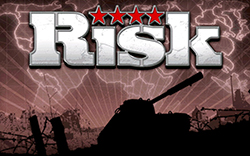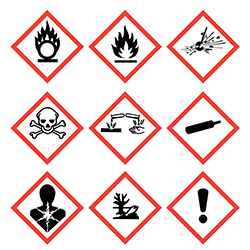 During the winter months, I spend quite a bit of time playing games with my boys. On our rides to visit family or nearby ski slopes we are usually lucky enough to have Mom drive, which means only one thing: electronic RISK via our iPads and iPhones.
During the winter months, I spend quite a bit of time playing games with my boys. On our rides to visit family or nearby ski slopes we are usually lucky enough to have Mom drive, which means only one thing: electronic RISK via our iPads and iPhones.
I grew up playing RISK on a board. It was always one of my favorites. It had world domination, strategy, personal vendettas, secret alliances, and the feeling that for an hour or two you were General Patton or Napoleon as you carved up the world. I used to spend hours playing with a group of my buddies over the winter break.
A few things have changed with the electronic version. The games are shorter as the computer places your armies and selects countries for you. And the pesky players ran by the computer seem to always roll the dice a little better than your human opponents. But the general theme and strategy remains the same.
This got me thinking that perhaps the game of RISK and the business of risk aren’t all that different. To win you need to:
- Understand your competition – Different opponents have built-in biases and tendencies. I knew that one of my sons got some joy in knocking another player out, even if that jeopardized his position for the rest of the game. At the same time, the computer had no bias. I defended my borders based on who the opponent was that adjoined my territory. The computer also rolled the dice better than my human competitors. I knew I would need more armies to successfully beat territory held by the computer.
- Plan your campaign carefully – Nearly every player in RISK has at least one perfect turn come their way. They were able to hold onto a continent or two and turned in a set of cards so they had a massive number of armies to use in their war of conquest. The only thing is they didn’t plan out several moves in advance as they worked their armies across the map. They ultimately stalled out, land-locked, and were unable to finish an opponent off.
- Pick the right location – Holding entire continents provides a player with much-needed new armies at the beginning of their turns. But not all continents are created equal. While Australia only provides 2 bonus armies, it just requires you to defend a single border. Asia is great with 7 bonus armies but almost impossible to hold turn after turn.
- Know when to take a risk – Players new to RISK will often conquer a country or two when it’s their turn, but not completely wipe out an opponent when given a chance. They feel like they’re acting boldly but don’t understand that the game of RISK requires you to literally, and figuratively, roll the dice. That might mean grinding yourself down to a single army. But it also might deliver the final blow to your opponent. Additionally, you can’t expect to win a campaign without more armies than your opponent. Sometimes you need to patiently use a turn or two to build up your reserves in preparation for your big push.
- Figure out what matters most – In RISK, it’s all about the number of armies. The game will sway back and forth until someone turns in a set of cards and receives such a massive number of armies that they conquer the entire map. So if armies are most important, how do you get them? You need to win at least one country every turn. And then, when you have the opportunity, you need to take out an opponent and capture their cards. Nothing else really matters but the number of armies you have. And the armies come with the cards. Cards matter more than anything!
What’s The Risk?
The risk is that we tend to make things way too complex. The business of risk, like the game of RISK, is really about some very simple rules.
Are you winning? If you are, I bet you’ve already contemplated these questions:
- How well do you understand your competition?
- Have you built a solid plan, looking ahead and incorporating anticipated changes?
- Are you in the right location?
- Will you seize the opportunity?
- What is most critical to your success and how well do you do it?
Over the years you might have transitioned from wooden pieces to plastic. Today your game is probably played electronically. Yet, most of the same rules still apply.




